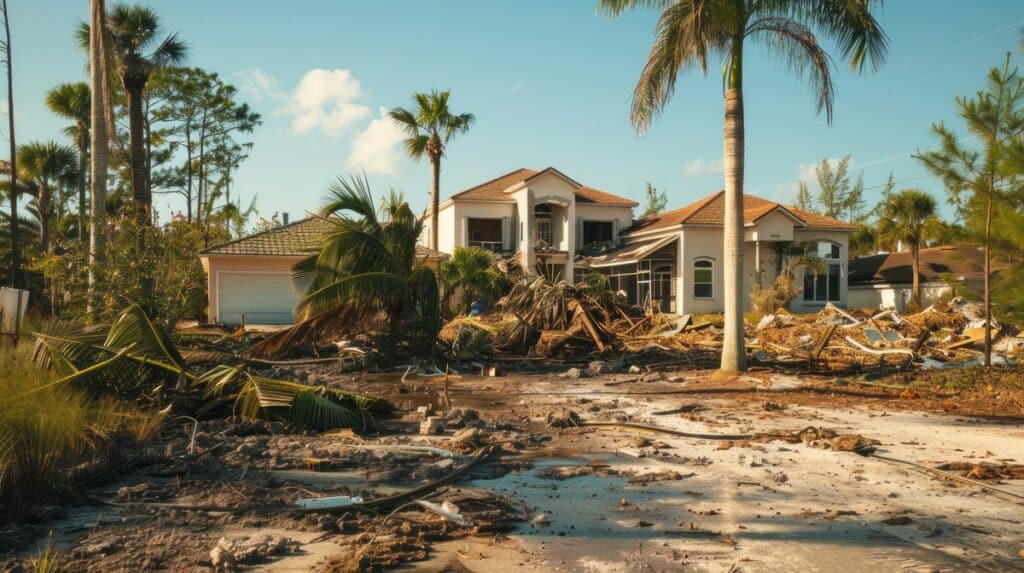The Federal Housing Administration (FHA) has announced that it is extending its foreclosure moratoriums for FHA-insured Single Family Title II forward and Home Equity Conversion Mortgages in Presidentially Declared Major Disaster Areas (PDMDAs) declared as a result of this past summer’s Hurricane Helene and Hurricane Milton.
This extension provides borrowers impacted by these events with additional time to access federal, state, or local housing resources; to consult with a HUD-approved housing counselor; and/or to rebuild their homes.
“When disaster strikes, we know that families and communities need not only resources, but time to recover,” said HUD Agency Head Adrianne Todman. “Today, by extending our foreclosure moratorium, we continue the Biden-Harris Administration’s efforts to help those affected by the catastrophic Hurricanes Helene and Milton to repair and rebuild their homes, communities, and lives.”
When Hurricanes Helene and Milton occurred, FHA implemented automatic 90-day foreclosure moratoriums that required mortgage servicers to halt the initiation or completion of all foreclosure actions in PDMDAs on the date that each disaster was declared. FHA is extending the foreclosure moratoriums for all Hurricanes Helene and Milton PDMDAs, regardless of their declaration date, through April 11, 2025. FHA is also extending the deadline dates for servicers to perform certain legal actions related to foreclosure for an additional 180 days following the end of the foreclosure moratoriums.
Nearly $300B in Damages
According to Science Insider, Hurricane Helene caused approximately $250 billion in damages to the southeastern U.S., concentrated in Florida, Georgia, and North Carolina. And less than two weeks later, Hurricane Milton wreaked havoc on Florida causing an additional $50 billion in estimated damages.
“Because the consecutive Hurricanes Helene and Milton caused a great deal of damage and disruption, FHA believes it is appropriate to extend our foreclosure moratoriums by 120 days,” said Federal Housing Commissioner Julia Gordon. “This extension will provide more time for homeowners to review a range of options with their mortgage servicer if they are unable to resume regular mortgage payments due to the impact of the disaster.”
Borrowers with FHA-insured mortgages located in Hurricanes Helen and Milton PDMDAs should contact their mortgage or loan servicer immediately for assistance. Multiple options are available for those who cannot resume their regular mortgage payments yet.
HUD and FEMA Partner to Further Homeowner Protections
In addition to the foreclosure relief or victims of these storms, HUD and the Federal Emergency Management Agency (FEMA) recently held a summit to launch the Pre-Disaster Housing Initiative, a program designed to help states develop plans to boost their post-disaster housing capabilities.
During an eight-month period, both HUD and FEMA will provide technical assistance and guidance to Kentucky, Michigan, and Missouri state officials and emergency managers to maximize housing-centric planning that can help mitigate potential housing shortfalls in communities when disasters strike. These states provide a cross-section of perspectives on the challenges of planning and executing post-disaster housing missions. This includes geographic diversity, frequency of major disaster declarations, and the types of disasters they are most likely to face. Over the next few months, each state will set their priorities as well as expected outcomes and engage with their local and community partners to develop a disaster housing strategy that can be executed when needed.
“This initiative is designed to strengthen relationships between emergency management and housing agencies both within a state and between the states in the cohort,” said FEMA’s Assistant Administrator for Recovery Colt Hagmaier. “This partnership remains a priority for both FEMA and HUD and we are thrilled to see the exponential impacts of this initiative throughout the nation.”
HUD and FEMA’s efforts will help build local capacity and support states to adopt a proactive approach to housing recovery. The initiative was created to address potential housing issues when disasters were not actively affecting the states to help ensure individuals, families, and communities can recover effectively. This type of planning also helps disaster-stricken states move from short-term sheltering programs to more sustainable housing solutions.
In 2023, HUD and FEMA concluded efforts for the first cohort of the joint housing initiative for Louisiana, Montana, New Jersey, and Washington. This inaugural initiative focused on the importance of identifying and addressing housing recovery challenges in a non-disaster environment, the benefit of information sharing among states and the value in tailoring federal support and resources to the unique needs and challenges of each state. The states participating in the first cohort urged HUD and FEMA to create a second round of the initiative and are providing guidance to the new states.
“The Pre-Disaster Housing Initiative answers the call from citizens to ensure all levels of government are ready for the day when a disaster strikes,” said Marion McFadden, Principal Deputy Assistant Secretary for Community Planning and Development. “Unfortunately, disasters are occurring far more frequently, with greater damage, so this work is necessary to protect people, properties, and infrastructure from harm.”





